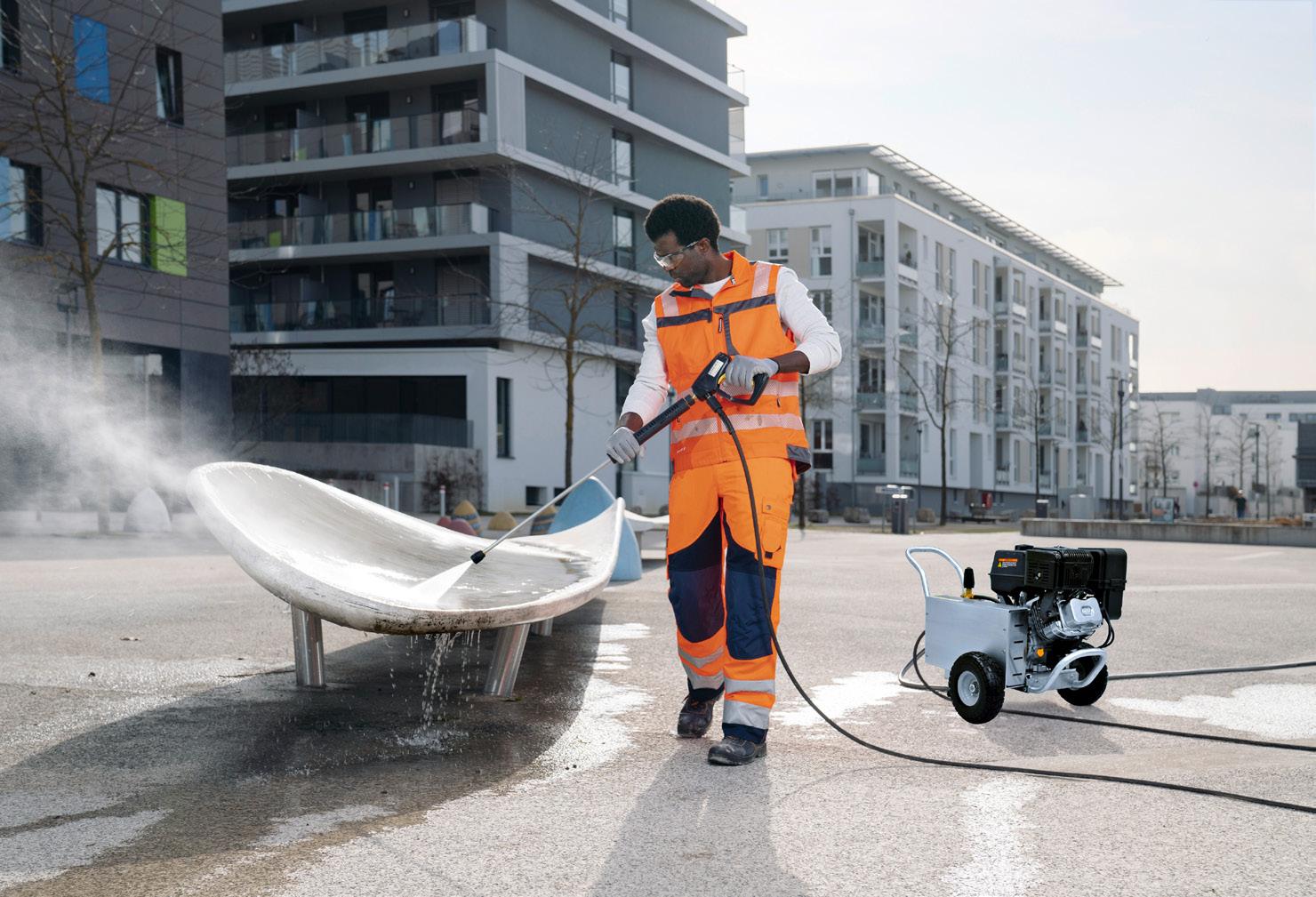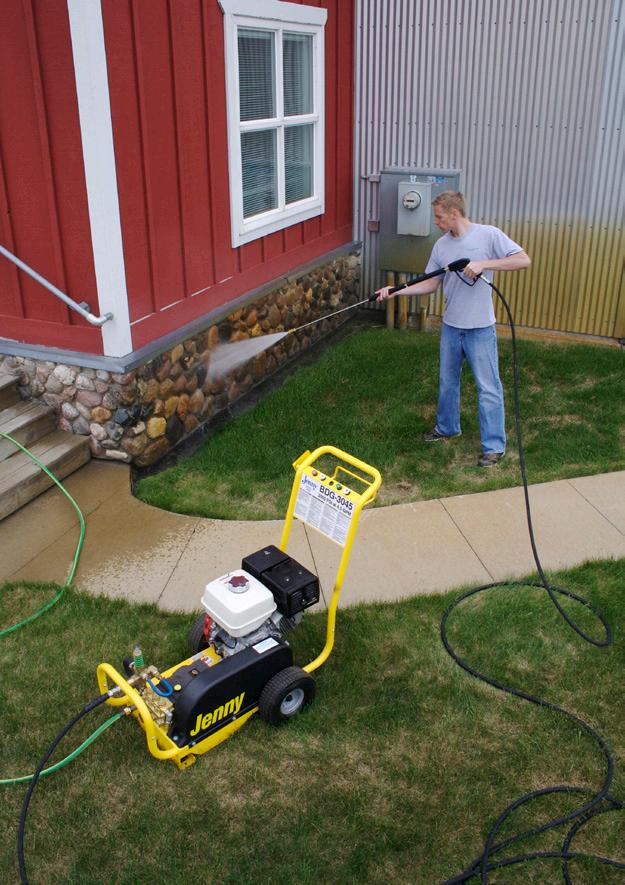
2 minute read
Finding the Perfect Match
Rental companies must ensure they help their customers find the best pressure washer for their unique circumstances. Here’s how.
As people rent pressure washers for the first time, they tend to seek out options that have very high pounds per square inch (PSIs). Unfortunately, in doing so, they often overlook pressure washers’ gallons per minute (GPMs), which are critical characteristics, too.
To prepare customers for their first rentals, rental companies must educate them from the moment they begin their search processes. To help their customers properly match pressure washers with application, companies should ask them what they intend to clean and what they want to remove.
In other words, they need to know what their customers are using their pressure washers for and how long they expect to rent them.
For instance, some manufacturers provide pressure washers that are created for light-, medium-, heavy- and industrial-duty cleaning applications. Light-duty applications are particularly ideal for customers that require the least amount of pressure and time possible, while industrial-duty applications are especially suitable for customers that need the highest pressure and longest timeframes.
“A light-duty pressure washer is an ideal choice for the ‘do-it-yourselfers’ to use around a home or workshop,” says Kevin Anstoetter, rental division manager, Mi-T-M Corp. “It is perfect to use for two to five hours per week and can be used to clean decks, gutters, patio furniture, siding and vehicles.”
On the other hand, medium-duty pressure washers are normally used on commercial properties, in order to remove light stains, mildew and mold from hard surfaces.
“Meanwhile, a heavy-duty or industrial-duty pressure washer is best for 20 to 30 (or more) hours of usage per week,” he adds. “These types of washers are especially used for concrete and brickwork, equipment cleaning, large deck and surface restoration, paint preparation and tough mold and mildew removal.”
Additionally, pressure washer users should keep in mind which types of soils they’re attempting to flush away.
According to Nate Abrahams, senior sales training specialist, Karcher North America, if users only need to flush away light dirt, any pressure is completely fine, but if they have to flush away heavy soil loads, which are commonly present on agricultural or construction equipment, they should utilize high-GPM machines (4 GPMs or more) instead, as higher-GPM machines will flush away heavy soil loads that smaller units won’t.
Anstoetter adds that customers must also consider a pressure washer’s cleaning units.


“Cleaning units can be determined by multiplying a pressure washer’s GPM and PSI,” he explains. “Simply put, the higher the cleaning units, the faster customers can clean.”
Consider The Basics
Aside from focusing on these measurements, Dan Leiss, president, Jenny Products, believes it’s important for rental companies to “start with the basics,” as they need to determine whether customers need hot- or coldwater units. From there, they should learn exactly where customers intend to use their pressure washers.
“Both hot- and cold-water pressure washers are available with electric motors or gas-powered engines. Electric motors are generally used indoors, while gas-powered engines are typically used outdoors,” Leiss says. Water pressure should also be considered. After all, the primary purpose of pressure is to help users break the bond between the contaminant they’re encountering and the surface they’re trying to clean. If pressure is too low, users won’t be able to break that bond without detergents or hot water. If pressure is too high, dirt will blow around more than it should, and surfaces may even be damaged.
“For rental companies especially, it’s best to find a happy medium and recommend a pressure washer that has adequate ratings for the type of use it will experience,” Leiss says. “If users are mostly washing vehicles, a 1,500PSI unit may be fine. If they’re washing construction equipment, they should consider using at least 2,000 PSIs. And, for industrial jobs, 3,000 PSIs or more is often required.”
Once the washer’s pressure










